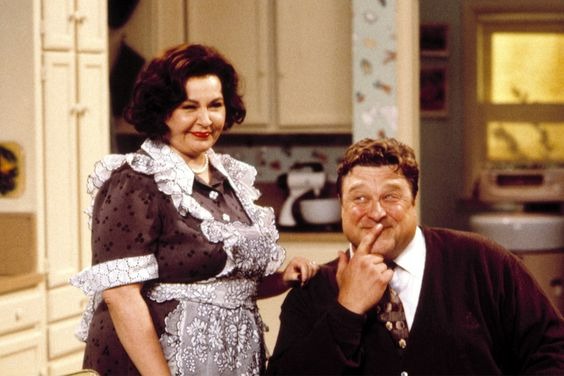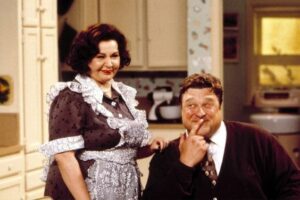
So far, original stars Roseanne Barr, John Goodman, and Sara Gilbert are reportedly on board to bring the irreverent, blue-collar sitcom back to life.
In the world of television, revivals have become a popular trend in recent years. From beloved sitcoms to iconic dramas, networks are tapping into the nostalgia of viewers by bringing back familiar shows. However, among this wave of revivals, one stands out as particularly timely and relevant – “Roseanne.”
“Roseanne,” the groundbreaking sitcom that originally aired from 1988 to 1997, made a triumphant return to television screens in 2018. The revival, simply titled “Roseanne,” garnered immense attention and sparked conversations across the nation. While the show’s revival was initially celebrated for its successful reunion of the original cast, it soon became evident that “Roseanne” had the potential to be more than just a nostalgic trip down memory lane.

One of the reasons why “Roseanne” could be TV’s most timely revival yet is its ability to tackle pressing social issues head-on. The show has always been known for its willingness to address controversial topics, and the revival is no exception. By delving into topics such as healthcare, immigration, and the struggles of the working class, “Roseanne” provides a platform for meaningful discussions on subjects that are pertinent to our society today.
In an era where polarization and division seem to dominate public discourse, “Roseanne” presents an opportunity for dialogue and understanding. The show portrays a diverse range of perspectives within the Conner family, allowing viewers to witness different viewpoints and engage in thoughtful conversations. By humanizing characters on both sides of the political spectrum, “Roseanne” challenges stereotypes and encourages empathy, fostering a sense of unity in a divided world.
Furthermore, “Roseanne” tackles the complexities of everyday life with a raw honesty that resonates with audiences. It explores the struggles of a typical working-class family, highlighting the economic hardships faced by many Americans. In a time where income inequality and financial uncertainty are major concerns, the show’s portrayal of these challenges strikes a chord with viewers who can relate to the Conner family’s experiences.
The revival of “Roseanne” also serves as a powerful reminder of the importance of representation in media. The show features a diverse cast, reflecting the reality of modern America. By showcasing characters from different racial and ethnic backgrounds, “Roseanne” promotes inclusivity and celebrates the richness of our multicultural society. It brings forth stories and perspectives that might otherwise be overlooked, contributing to a more inclusive television landscape.

In conclusion, “Roseanne” could be TV’s most timely revival yet due to its ability to address pressing social issues, foster dialogue and understanding, and represent diverse perspectives. By confronting topics that are relevant to today’s society and portraying relatable struggles, the show resonates with viewers on a profound level. As we navigate the complexities of the modern world, “Roseanne” serves as a beacon of relevance, reminding us of the power of television to reflect and shape our collective consciousness.
